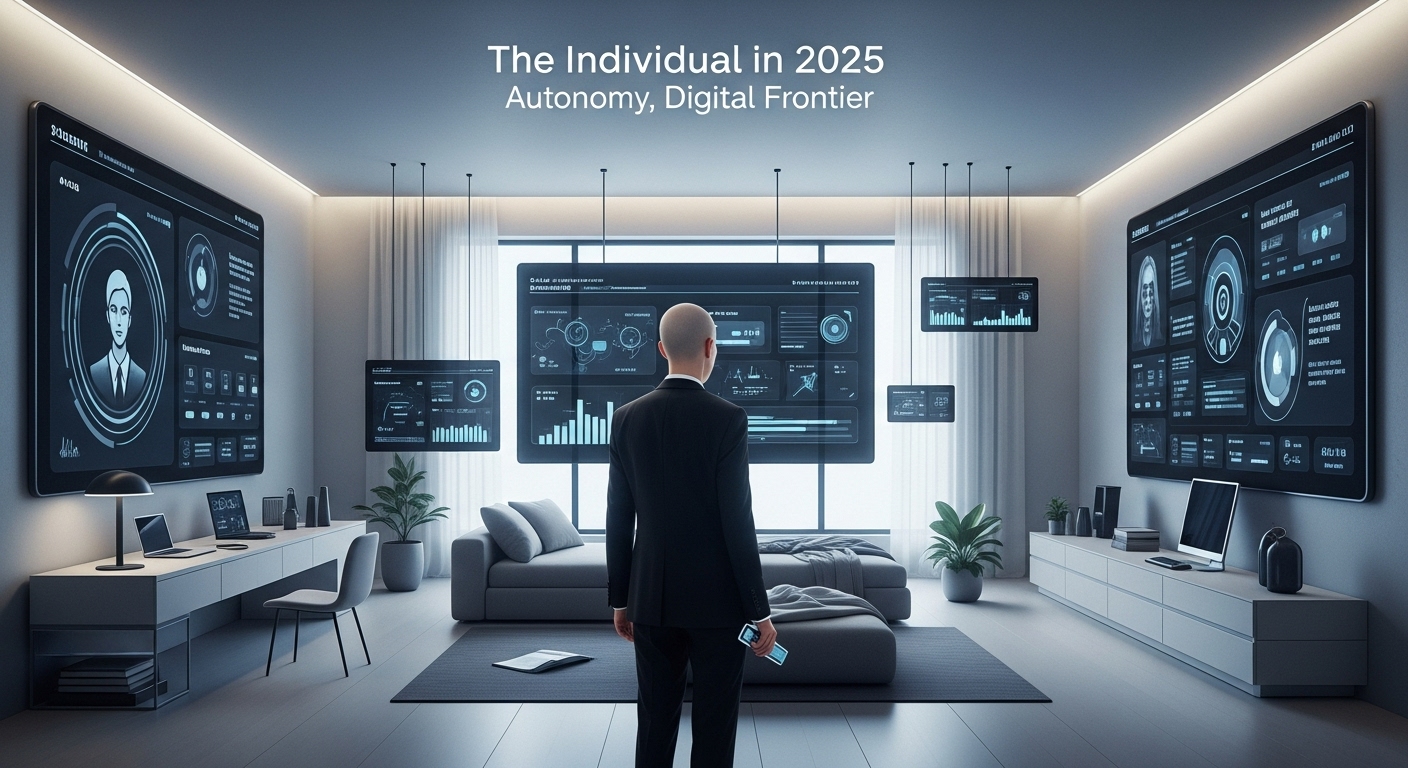In a world increasingly shaped by global networks, collective movements, and mass communication, the concept of the “individual” remains profoundly vital. Far from being a mere component of a larger whole, the individual is a unique universe of thought, emotion, and experience – a distinct entity whose presence and actions ripple through the fabric of society. As of mid-2025, understanding the individual’s inherent value, evolving identity, and dynamic relationship with the collective is more crucial than ever.
Defining the Individual: Uniqueness and Autonomy in a Connected Age
At its core, an individual is a single, distinct human being, characterized by:
- Uniqueness: No two individuals are truly identical. Each possesses a unique genetic makeup, a distinct set of life experiences, and a singular blend of personality traits, talents, and perspectives. This individuality is the wellspring of diversity and innovation.
- Autonomy: The capacity for self-governance and independent thought. This concept, emphasizing personal freedom and self-reliance, gained prominence during the European Enlightenment and continues to evolve. In 2025, autonomy is increasingly discussed in the context of digital choices – the right to control one’s data and online presence.
- Intrinsic Worth: Philosophically, many traditions affirm the inherent dignity and value of each individual, regardless of their societal role, achievements, or characteristics. This principle forms the basis of human rights globally, including the extension of these rights into the digital sphere.
The Formation of Identity: A Lifelong Journey in a Digital Mirror
Psychologically, the “self” and “identity” are not static concepts but evolve throughout an individual’s life. This journey is influenced by a complex interplay of factors:
- Personal Experiences: Childhood, relationships, successes, failures, and pivotal life events all shape who we become.
- Cultural Influences: The societal norms, values, beliefs, and traditions of the community and broader culture in which an individual is raised profoundly impact their worldview and self-concept. Cultural identity is a critical piece of personal identity, developing as individuals absorb, interpret, and adopt (or reject) the beliefs, values, behaviors, and norms of their communities. This is particularly relevant in increasingly multicultural societies, where individuals may navigate multiple identities simultaneously.
- Social Roles: The various roles an individual occupies – child, sibling, student, professional, parent, friend – contribute to their multi-faceted identity.
- Self-Reflection: The ongoing process of introspection, understanding one’s own thoughts, emotions, and motivations, is crucial for developing a coherent sense of self. In 2025, this often includes reflection on one’s online persona and digital footprint, as individuals perform and negotiate multiple identities across different social contexts, both online and offline.
Individual Rights and Responsibilities: The Evolving Social Contract
The concept of the individual is inextricably linked to the idea of rights and responsibilities within a society:
- Rights: These are fundamental entitlements that protect an individual’s freedom, dignity, and ability to flourish. This includes digital rights, which allow people to access, use, create, and publish digital media, as well as access and use computers and communication networks securely. Privacy and data protection are paramount digital rights, with regulations like GDPR influencing how personal data is handled globally. The right to anonymity and the right to be forgotten (having private information removed from internet searches) are also gaining traction.
- Responsibilities: For a society to function, individual rights are balanced by corresponding responsibilities. These include respecting the rights of others, obeying laws, contributing to the community, and taking accountability for one’s actions. In the digital realm, this extends to responsible online behavior, ethical data practices, and combating online hate and disinformation, which are growing human rights issues.
The tension and balance between individual freedoms and collective well-being are a continuous area of philosophical and political discourse, intensified by the complexities of the digital age.
The Individual in the Digital Age: Challenges and Opportunities in 2025
As of mid-2025, the digital landscape presents both unprecedented opportunities and unique challenges to the individual:
- Enhanced Self-Expression and Connection: Online platforms offer individuals unparalleled avenues for self-expression, creative output, and connecting with like-minded individuals across geographical boundaries. The number of internet users continues to grow, fostering increasing global connectivity.
- Hyper-Personalization and Algorithmic Influence: Digital services increasingly cater to individual preferences, using AI and algorithms to tailor everything from news feeds and content recommendations to personalized shopping experiences. While convenient, this also raises concerns about “filter bubbles” and algorithmic bias, where AI systems, reflecting their training data, can perpetuate or exacerbate discrimination. This can subtly influence an individual’s choices and worldview, impacting autonomy.
- Privacy and AI Ethics: The vast amounts of personal data collected about individuals online, especially by AI systems, raise significant privacy concerns. AI-powered surveillance, whether by states or private actors, enables pervasive monitoring, potentially eroding freedom of expression. Ethical AI development demands transparency about data usage, obtaining informed consent, and protecting against algorithmic bias and discrimination.
- Shifting Identity and Perception: Digital technology directly impacts our sense of “self.” From the curated self-image presented on social media to the challenge of deepfakes and the ease of identity performance, individuals are navigating increasingly blurred boundaries between their physical and digital identities.
- Mental Well-being and Digital Balance: While technology provides immense benefits, concerns about its impact on individual mental health persist. Issues like excessive screen time, social comparison, and digital addiction are leading to a growing emphasis on “digital detox” and mindful technology use as essential aspects of self-care. Trends in wellness for 2025 highlight a focus on digital detoxing, being in nature, and personalized wellness that integrates technology to support, not dictate, well-being.
- AI and Workplace Transformation: The rapid evolution of AI is transforming skill demands in the workforce. Individuals face the challenge of continuously upskilling and adapting to new technologies. AI’s integration into hiring processes and the potential automation of tasks present challenges, but also opportunities for individuals to leverage AI as a “digital sidekick” to enhance their skills and productivity, enabling focus on higher-level, creative work.
The Enduring Significance
The flourishing of society depends on the recognition and nurturing of its individuals. Each person’s unique contributions, ideas, and creativity are the engines of progress and innovation. Simultaneously, the individual’s willingness to engage responsibly with the collective, to respect the rights of others, and to contribute to the common good, is essential for a harmonious and just society.
The individual is not merely a data point in a vast network; they are the fundamental unit of humanity, a boundless wellspring of potential, and the ultimate reason why progress, empathy, and meaningful connection truly matter. Recognizing and valuing the individual remains the cornerstone of a thriving future.


